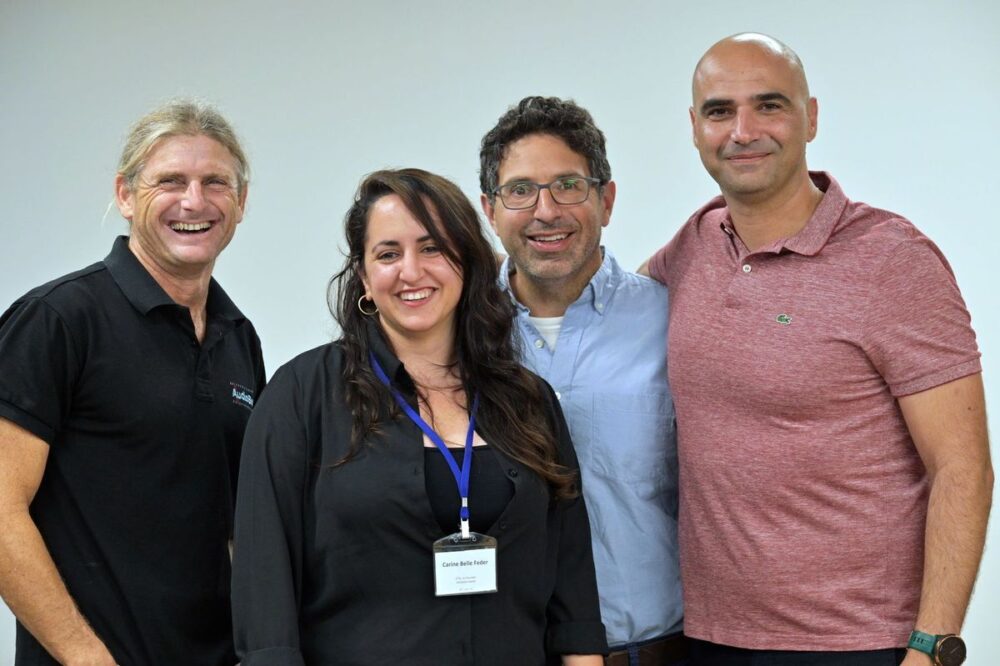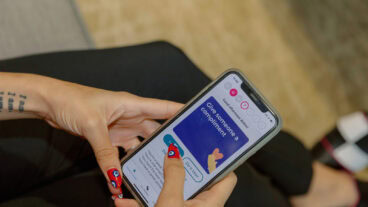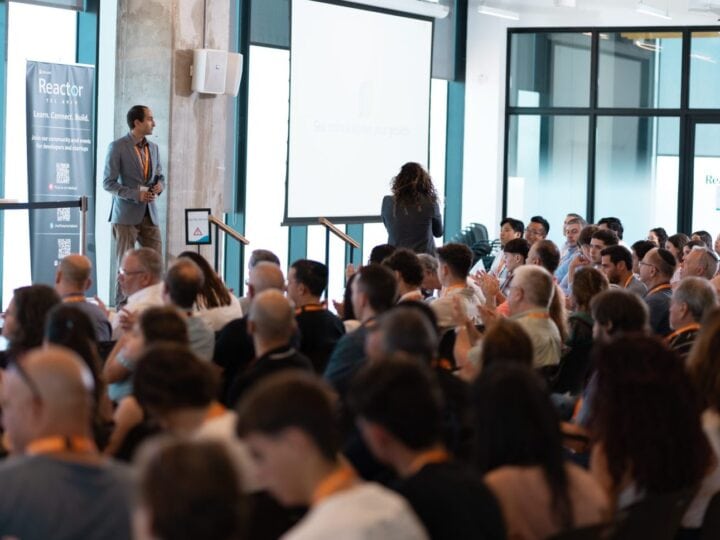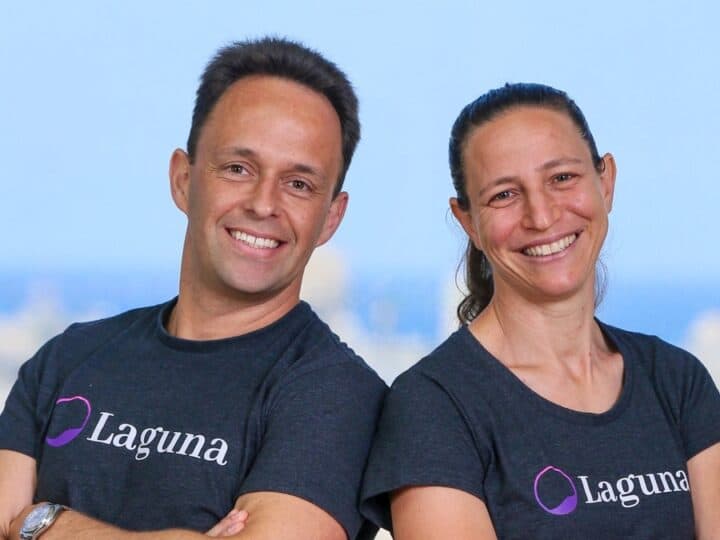Thirty-eight million Americans without health insurance wake up every day hoping they won’t need medical care. Another 44 million have health insurance insufficient for their needs.
A new alternative for those 82 million Americans — typically earning between $17,000 and $55,000 annually — comes from Israel, a faraway country of just 9.2 million.
Call it chutzpah if you will. But the founders of Antidote Health believe their plan to build a digital health maintenance organization will help cure the healthcare access crisis for US citizens earning too much to be eligible for public insurance and too little for adequate private coverage.
Antidote’s online telehealth service offers one-time remote doctor visits and low-cost monthly subscriptions, starting at $29 for individuals and $49 out-of-pocket charge for families, for online acute or primary care checkups and prescriptions. There are no deductibles or copays.
When ISRAEL21c spoke with cofounder and chairman Ben Enosh in early October, Antidote Health was nine months old and already available in New York, New Jersey, Michigan, Florida, North Carolina, California, Pennsylvania and Ohio.
With $12 million in seed funding from investors including iAngels, Welltech Ventures and Flint Capital, Antidote Health intends to cover the entire United States by the end of next year.
Keeping you healthy
“We took the playbook of the Israeli system – the HMO structure – and will apply it to the underserved population in the US,” says Enosh, whose previous ventures include cofounding Cyota, a fintech company acquired for $145 million in 2005.
Healthcare gobbles up 18 percent ($4 trillion) of the GDP of the United States, and costs are rising 4.6% annually. In Israel, the national HMO structure keeps healthcare to 7.5% of GDP, yet service and outcomes generally are better than in the United States, says Enosh.
“Israelis pay a monthly fee, and from that point on, any medical expense you incur is expensed to your HMO provider,” Enosh explains. “The HMOs are not compensated on treating you but on keeping you healthy, so they focus on prevention – such as annual screenings and patient education.”
HMOs do exist in the United States, but infrastructure costs have hindered their expansion.
“We come from a different approach,” says Enosh. “We provide a set of services that is totally digital, incorporating a lot of AI technologies to save resources. And every interaction we have with the brick-and-mortar world, we integrate through a layer of financial services.”
Using Antidote Health
An AI bot on the Antidote Health app takes registered users through an intake questionnaire and then helps schedule a virtual appointment with a participating Antidote physician licensed in the state where the patient is currently located.
Kids can download their own version of the Antidote app. Parents and children in different locations (such as work and school) may participate in a three-way virtual checkup.
The Antidote Health bot was developed by a team led by CTO and cofounder Carine-Belle Feder, recipient of the Israel Defense Prize for her role in the elite 8200 military intelligence unit.
“Within a few months we already started teaching the bot by working with 60,000 patients in Israel’s Terem [chain of urgent care] centers,” says Enosh.
The bot also got “trained” on 20 years of anonymized patient data from Terem, whose former chief medical officer, Dr. David Zlotnick, is cofounder and CMO of Antidote Health.
Often, a virtual doctor visit can prevent an emergency room visit – which currently is not covered by Antidote.
Antidote’s participating doctors also receive a decision support system powered by AI. This helps them handle common complaints and conditions virtually with ease. If necessary, the physician can recommend a specialist to be paid for out-of-pocket.
The company may incorporate Israeli digital health-tech products that fit within its affordability model, says Enosh. Hardware solutions such as TytoCare may not be possible, but software solutions such as Vocalis Health and Binah.ai could be promising potential partners.
Saving on prescriptions
Antidote Health users may fill digital prescriptions at any pharmacy. Enosh says about 95% of acute and primary care health pharmaceuticals are included in Antidote’s “basket” of reimbursed drugs, a concept borrowed from the Israeli system.
Antidote’s engine automatically replaces branded prescribed drugs with generic equivalents and searches in real time for discount coupons to apply.
We’re talking big savings here: An Augmentin prescription costs $260 at Kroger’s. The generic equivalent costs $67, and with a certain coupon just $12.75.
“Since we pay for drugs, so we are incentivized to figure out how to reduce the price,” says Enosh. “In a virtual world, dollars become cents as you use more technology to make healthcare delivery more efficient.”
Antidote loads the cost of the drug onto a dedicated debit card modeled on Israel’s Passport Card service.
Antidote Health plans in the future to launch an insurance product to cover other out-of-pocket healthcare expenses including in-person visits.
“We’ll push the amount of money needed into your debit card. By paying at the point of care, we can get deep discounts,” says Enosh.
Also coming soon are “virtual clinic” packages for Antidote health members with diabetes, hypertension or mental-health issues, covering prescriptions and extra checkups.
Virtual checkups go mainstream
Founder and CEO Avihai Sodri managed innovation at Israel’s Leumit HMO. He saw that digitizing healthcare could cut costs dramatically.
But the average consumer wasn’t ready for virtual doctor visits – until Covid hit.
“Suddenly everything fell into place. Everybody knew how to use Zoom and was willing to be treated at home without driving to a medical facility and looking for a parking space. That was the genesis of the idea of making a virtual HMO.”

To disrupt any industry, Enosh says, “you always look for an underserved market where you’re not stepping on anyone’s toes. No insurance company thought there was money to be made from the uninsured population. So we understood that there was a ‘blue ocean’ opportunity.”
Enosh explains that Antidote doesn’t need to spend much on customer acquisition and marketing.
More than 50 physicians have come onboard so far, and some even invested in the company.
“A lot of doctors have in their mission a desire to help the people who need it the most and can’t afford it,” says CMO Zlotnick.
Flexibility is also a draw, as physicians can work from wherever they are and take advantage of the AI decision-support system to maximize efficiency.
Furthermore, Zlotnick says, “We’ve built a physician community with lectures, events and WhatsApp groups. By giving us feedback, they can be partners with us in building the system.”
Antidote Health is lean, with about 35 employees in its Tel Aviv development center. The company maintains a New York headquarters and a legal compliance team in Washington DC.
And yet, says Enosh, “We think we can become the largest HMO in the world by the end of this decade.”
For more information, click here

















